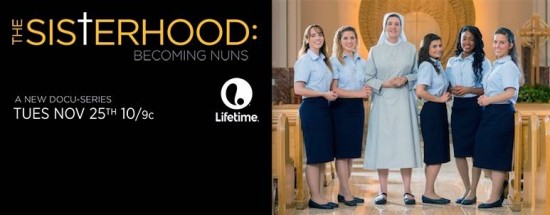I had not heard of this new online series from Hulu, until I read Joseph Susanka’s piece — but what a fascinating premise!
The series’ premise is startlingly simple: the Man (Xander Berkeley) sits in a booth at Cadillac Jack’s Driver-In and waits. People—convinced that he can “get things” for those who want them badly enough—visit his booth, and he makes a bargain with each of them: if they complete the task he assigns, they will get what they so desperately desire.
But his bargains are harsh and unsettling: James, a successful businessman seeking to avert his son’s death from leukemia, is ordered to kill a young girl. Sister Carmel, a faithful nun for fifteen years who yearns to “hear God again,” is told that the only way to guarantee the return of her faith is to become pregnant. Mrs. Tyler, a feeble retiree struggling to cope with her husband’s Alzheimer’s, is tasked with detonating a bomb in a busy coffee shop, while Jenny, a pretty, shallow young woman, must rob a bank in order to achieve the physical beauty for which she longs.
How far will they go to get what they want?
It sounds sensational — and sensationalistic — but Susanka notes that it’s really an invitation to ask ourselves a few things:
“Two wrongs don’t make a right’ is the sensible response to the choices confronting James, Mrs. Tyler, and their fellow sufferers, but the viewer is not let off the hook with that casual truism, because ultimately The Booth is a singe to the conscience: How often are we willing to compromise on smaller matters, setting aside what we know to be right and just for the sake of our own desires? Surely, we would not kill another to further our own ends, but how many of us are willing to ridicule and belittle others in the feverish building up of our own importance? Few of us stand ready to rob a bank for the sake of our own beauty, yet the number of those prepared to wage a costly and outlandish battle against the natural decline of their physical form is frighteningly large. Are those two groups really so far apart? How far will we go to get what we want?
Read Joseph’s whole column, and yeah, this definitely sounds like something worth exploring:
+ + + + + + + + + +
Related:
The Confession, Online Series












